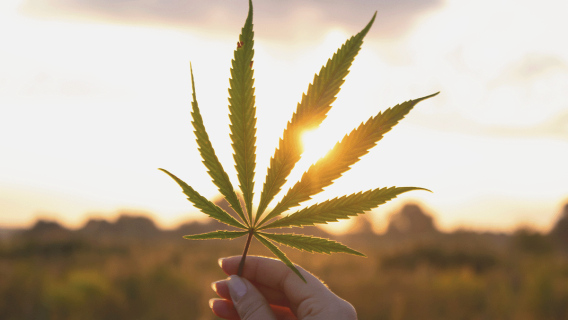Democrats have put together a cannabis dream ticket.
Investors act like they haven’t even noticed. This seems like a big mistake.
My key takeaway: Cannabis stocks look buyable in the current bout of dramatic weakness for the sector.
Cannabis investors are notoriously bipolar. Right now, they are in a dark mood. That’s usually been the best time to add to positions, especially when there are potential catalysts on the horizon like now. For the best stocks to own, consider subscribing to Cabot Cannabis Investor.
The Bullish Changeup
In the course of less than three weeks, Democrats have transformed their White House ticket from one led by someone with a lukewarm position on cannabis to one where both candidates are enthusiastic reform advocates. This is a remarkable changeup.
[text_ad]
President Joe Biden opposes recreational-use legalization, and he has a history of anti-cannabis rhetoric.
Vice President Kamala Harris favors recreational-use legalization, and now she has a running mate who does too, in Minnesota Gov. Tim Walz (D).
Of course, we don’t know if they will win the race for the White House. But polls suggest they have a good shot. Even if they don’t ultimately win, we could see two bullish pre-election developments for the sector, given their unified view on the issue and their need to spotlight issues that draw votes.
1. Cannabis could become a more high-profile topic in the presidential campaign of Harris and Waltz. Polls consistently show U.S. voters support full legalization. This is true, even on the right.
Anecdotally, we know cannabis reform has the potential to draw votes on the right, because of the following: Acceptance of cannabis use broadened this week in both Ohio and New Hampshire, neither of which are bastions of liberal thought.
Legal rec-use sales launch this week in Ohio, the current home state of Republican vice-presidential candidate JD Vance. New Hampshire Gov. Chris Sununu (R) just signed a bill that expands medical use by allowing doctors to recommend it for whatever they see fit. Previously, the state had a laundry list of conditions.
In other words, making cannabis an issue in the presidential campaign could pull votes from both sides of the political spectrum. So Harris and Walz have an incentive to spotlight cannabis reform.
2. We could see progress soon on rescheduling cannabis under the Controlled Substances Act.
This administration’s Department of Health and Human Services has recommended rescheduling to the Drug Enforcement Administration (DEA) which is now mulling the issue. It closed public comment on rescheduling on July 22. Political expediency suggests a rescheduling decision would land in October, to position it closer to the election for greater impact.
Harris has openly asked the DEA to expedite rescheduling. Now that both candidates on the ticket are legalization advocates – and polls show the Democrats need every vote they can get – it seems likely their pressure on the DEA will mount. Rescheduling would help cannabis companies by exempting regulation which now blocks them from deducting operating expenses against revenue.
Cannabis “Dream Ticket”
To see why Harris-Walz is a cannabis dream ticket, let’s consider their views on marijuana. Harris not only wants full legalization, she’s promoted pardons for cannabis convictions. Walz is right there with her. The Harris-Walz ticket is the first ever where both candidates favor full legalization of cannabis for both recreational and medical use.
Since he’s the new addition to the cannabis dream team, let’s take a quick look at his record.
The most obvious indicator of his views on cannabis is that Walz aggressively campaigned for rec-use legalization as governor of Minnesota, and eventually signed a legalization bill in 2023. He also signed a bill that lets hemp businesses market cannabis drinks and food containing cannabinoids. And he approved legislation to decriminalize drug paraphernalia.
In the U.S. House of Representatives, Walz supported a version of a banking reform bill that allows banks to serve cannabis companies. He also backed bills supporting medical cannabis research for veterans, the hemp industry, and a ban on federal interference with state-level legalization.
The bottom line: It could still be months before we see any decision on rescheduling from the DEA and its parent agency, the Department of Justice. If rescheduling is a political football, the administration would want a decision timed close to the early November election for a bigger impact. But rescheduling remains on the horizon as a potential catalyst. Now cannabis as a potential campaign topic does, too.
[author_ad]

